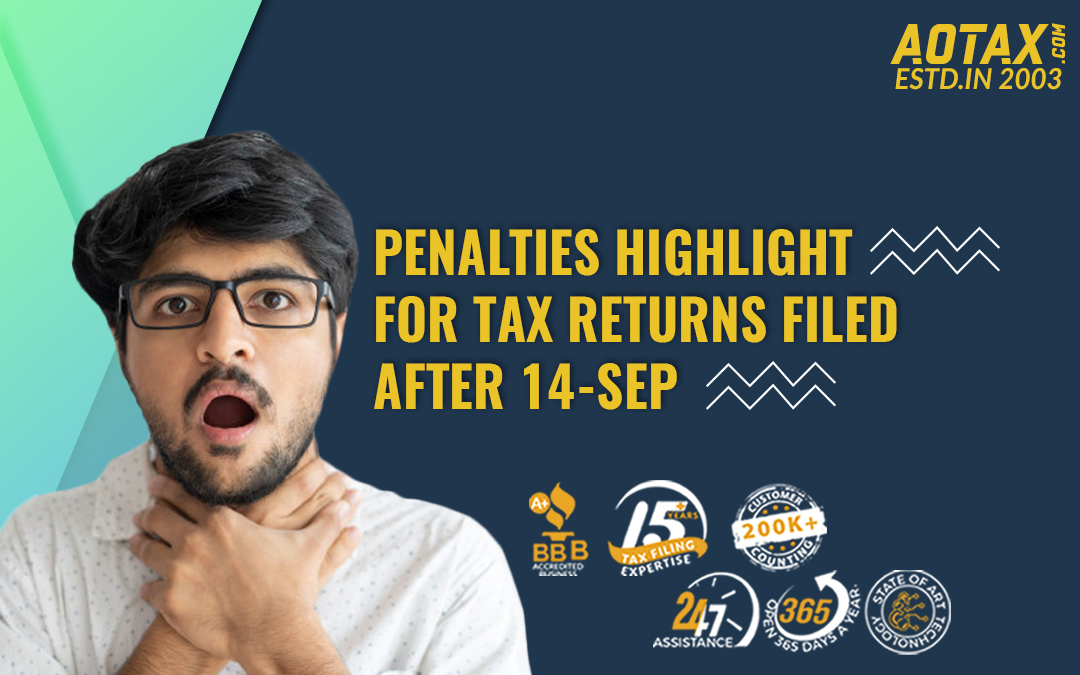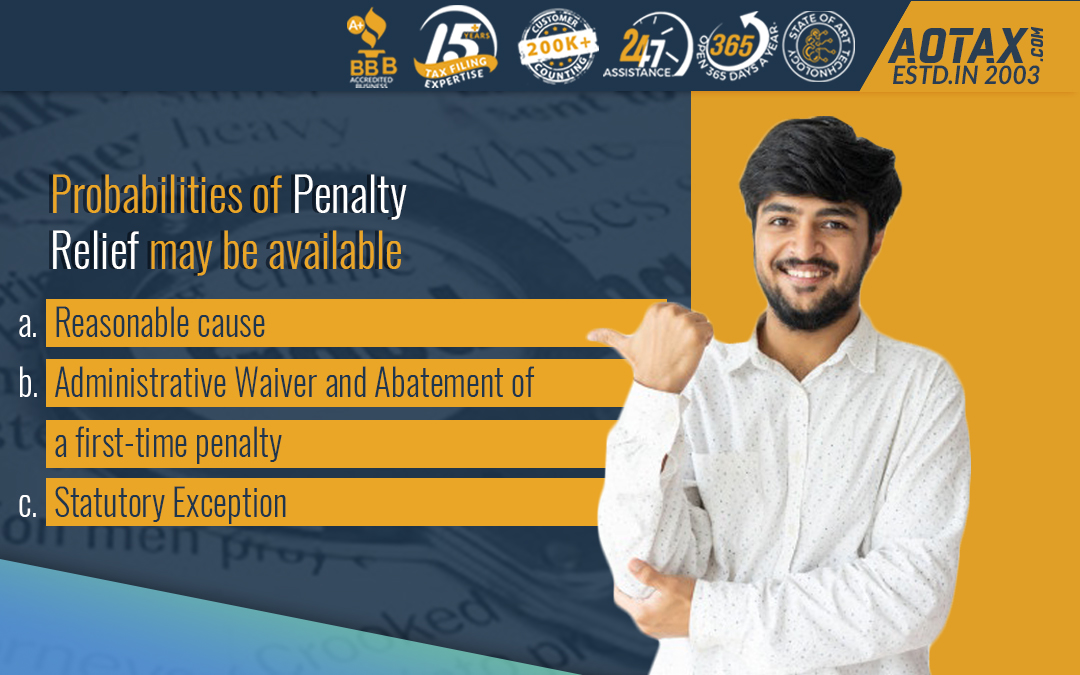Penalties highlight for tax returns filed after 14-Sep

The IRS has very recently urged the US citizens to act immediately if they have taxes due and have not filed their tax returns for 2019. After 14th September 2020, the IRS would be imposing huge penalties on those who owe taxes and are not updated concerning their tax returns.
The deadline for tax filing was 15th July 2020 due to the adverse consequences caused by the pandemic COVID-19. Several taxpayers have submitted their request for an extension to file their tax returns would not be paying any penalties until 15th October 2020. However, it is an essential point to keep in mind that this extended period is for the filing of tax returns only and not for the payment of tax. Any tax which is due after the 15th July 2020 deadline would be considered as a failure to pay penalty and interest would be charged on it.
There are still many taxpayers who did not make an extension request but owe taxes; will be facing the failure to file the tax returns and also the failure to pay the penalties. It is advisable for these taxpayers to immediately file their tax returns and pay as much as they can before huge penalties are levied from 14th September 2020 onwards.
- The penalty charged for non-filing of the tax returns by the specified date or by the extended date even is 5% of the tax which is unpaid for each month.
- It can also be charged for that part of the month for which there has been a delay in the tax return filing at the rate of 25% of the tax unpaid.
- If there has been a delay of 60 days in the filing of tax returns, a minimum penalty is charged.
- In case, there has been no filing of tax returns even after 60 days; the minimum penalty charged is either $435 or 100% of the unpaid tax whichever is lower.
- This year, this period of 60 days starts after 14th September 2020. After 14th September 2020 heavy interest or penalties would be charged on the tax defaulters.
- Apart from the penalties, interest would also be charged for any tax which has not been paid by the tax payment due date of 15th July 2020.
- However, if there is a refund due for a taxpayer no penalty would be charged for the filing of tax returns late by the taxpayer.
Probabilities of Penalty Relief may be available

- If there has been no assessment for any penalties for taxpayers for the past three years would be eligible for an abatement of penalties.
- If a taxpayer is not eligible for the relief of his first-time penalty relief, still he can qualify for penalty relief if the cause for non-filing of tax returns or non-payment of tax was due to some reasonable reason.
- The different types of penalty relief which are offered by the IRS are
Reasonable cause
The reasonable causes for failing to file tax returns are:-
- Natural disasters, fire, or any other disturbances
- Inability in obtaining the necessary records
- Death, any serious illness, unavoidable absence of the taxpayer or his immediate family member
- Other causes which state that despite using all care to meet the tax obligations, the taxpayer has not been able to do so.
Administrative Waiver and Abatement of a first-time penalty
A taxpayer would be eligible to qualify for the administrative waiver from the penalties due to filing of tax returns late or for non-payment of taxes on time under the below circumstances:-
- The taxpayer did not have to file tax returns previously or he has no penalty for the previous three tax years which are before the one in which penalties have been received.
- If the taxpayer has paid or rather has made the arrangement for making the payment all due taxes.
- If the taxpayer has filed the current tax returns or has filed an extension in the time to file a tax return.
- A taxpayer can also be eligible for an Administrative waiver if he has received incorrect oral advice related to tax returns and payment from the IRS.
Statutory Exception
A taxpayer would qualify for a Statutory Exception if he has received incorrect written advice from the IRS. The taxpayer would have to submit various evidence to prove this such as
- The written request made for advice
- The erroneous written advice which was sent by the IRS
- Report on any tax adjustments which have been made due to the erroneous advice obtained from the IRS.
The taxpayer can file Form 843, Claim for Refund and Request for Abatement to request for penalty relief in case of incorrect advice obtained by the IRS.
Get extra time for the tax payment

If a taxpayer owes tax but is not able to make the full payment, then he can opt for payment of taxes by a payment plan which includes an Installment Agreement. A qualified taxpayer or an authorized representative is eligible to apply for a payment plan to make payments of the taxes over time. A taxpayer who is unable to pay the full amount must contact the IRS to know about the options available.
The IRS might provide options like short-term extension, and installment agreement or offer in compromise can be offered, etc.
Conclusion
Hence, taxpayers must be alert and file their tax returns before the deadline if they have not done so to avoid huge penalties.

Recent Comments